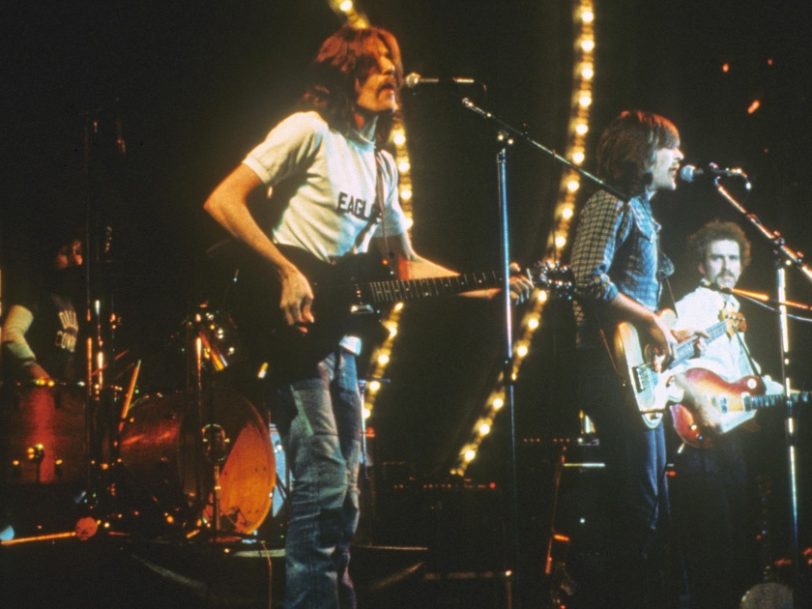While Eagles would go on to become one of the biggest bands of all-time – the collection Their Greatest Hits (1971-1975) is the best-selling album in the US of all time, with 38 million copies sold, and the Hotel California album isn’t far behind – they got their initial break as Linda Ronstadt’s backing band. After discovering their intuitive musicianship, the bandmates formed their own group, with Eagles’ debut album revealing the trademark sound that would define West Coast country-rock.
Listen to Eagles’ self-titled debut album here.
“Our main was to write good, memorable songs”
Rhythm guitarist and singer Glenn Frey and drummer Don Henley had met back in 1970. The two musicians had each spent their early years playing in bands and were both signed to the Los Angeles-based label Amos Records – Frey as part of the duo Longbranch Pennywhistle (with JD Souther) and Henley as a member of folk-rockers Shiloh.
Linda Ronstadt’s then manager, John Boylan, had been tasked with forming a backing band for the country singer’s tour in support of her 1970 album, Silk Purse. He asked Frey to join the group, and Frey in turn suggested Henley. Future Eagles Randy Meisner (bassist) and Bernie Leadon (guitar, banjo, mandolin, pedal steel, dobro) also joined Ronstadt’s band at different points of the tour. Owing to changes in personnel throughout, however, the four musicians only once played together behind Ronstadt – at a gig in Disneyland – though they did all appear at various points on Ronstadt’s self-titled album, which followed Silk Purse in 1972.




